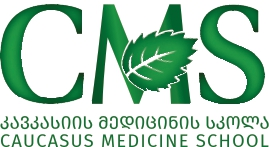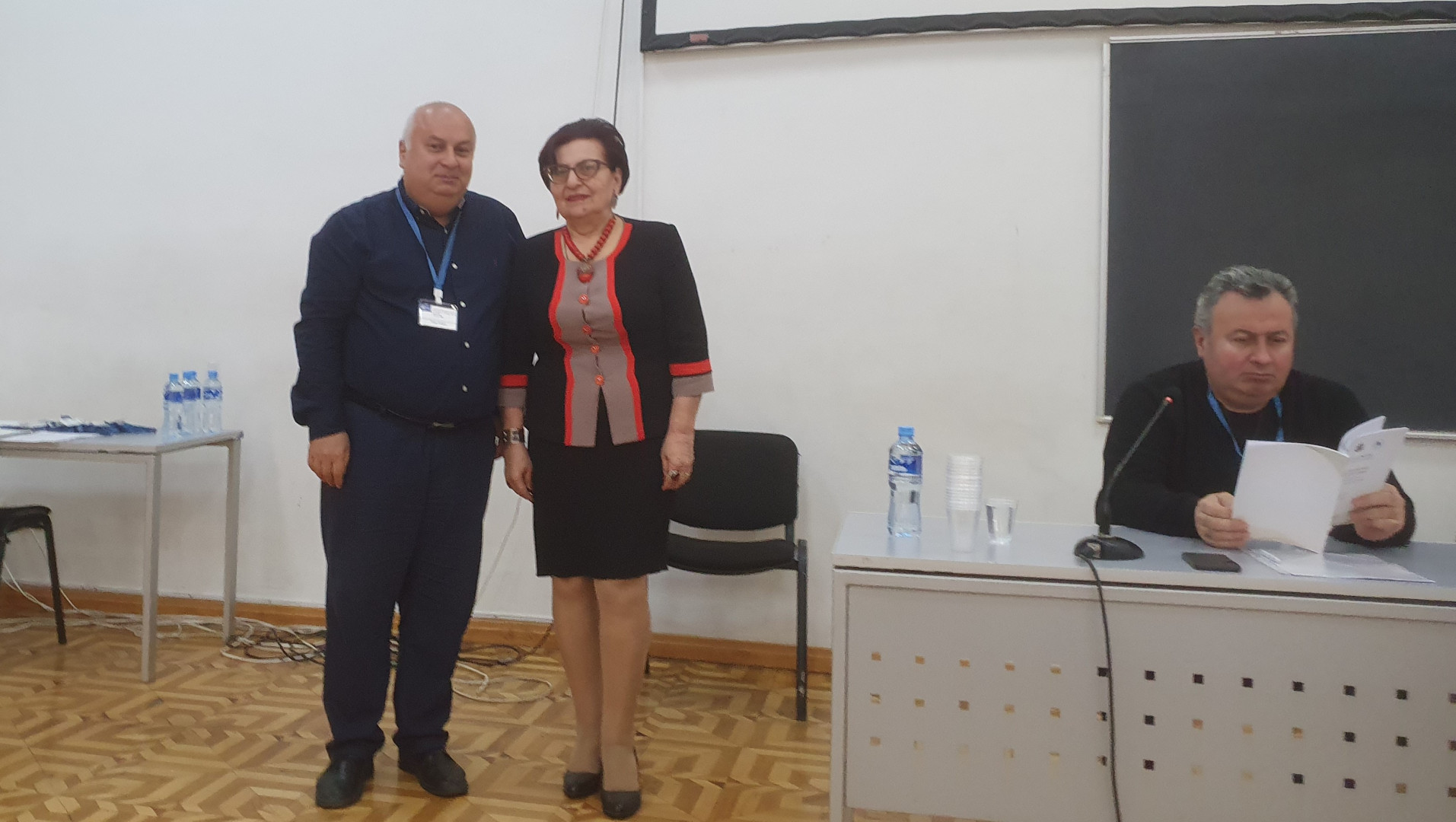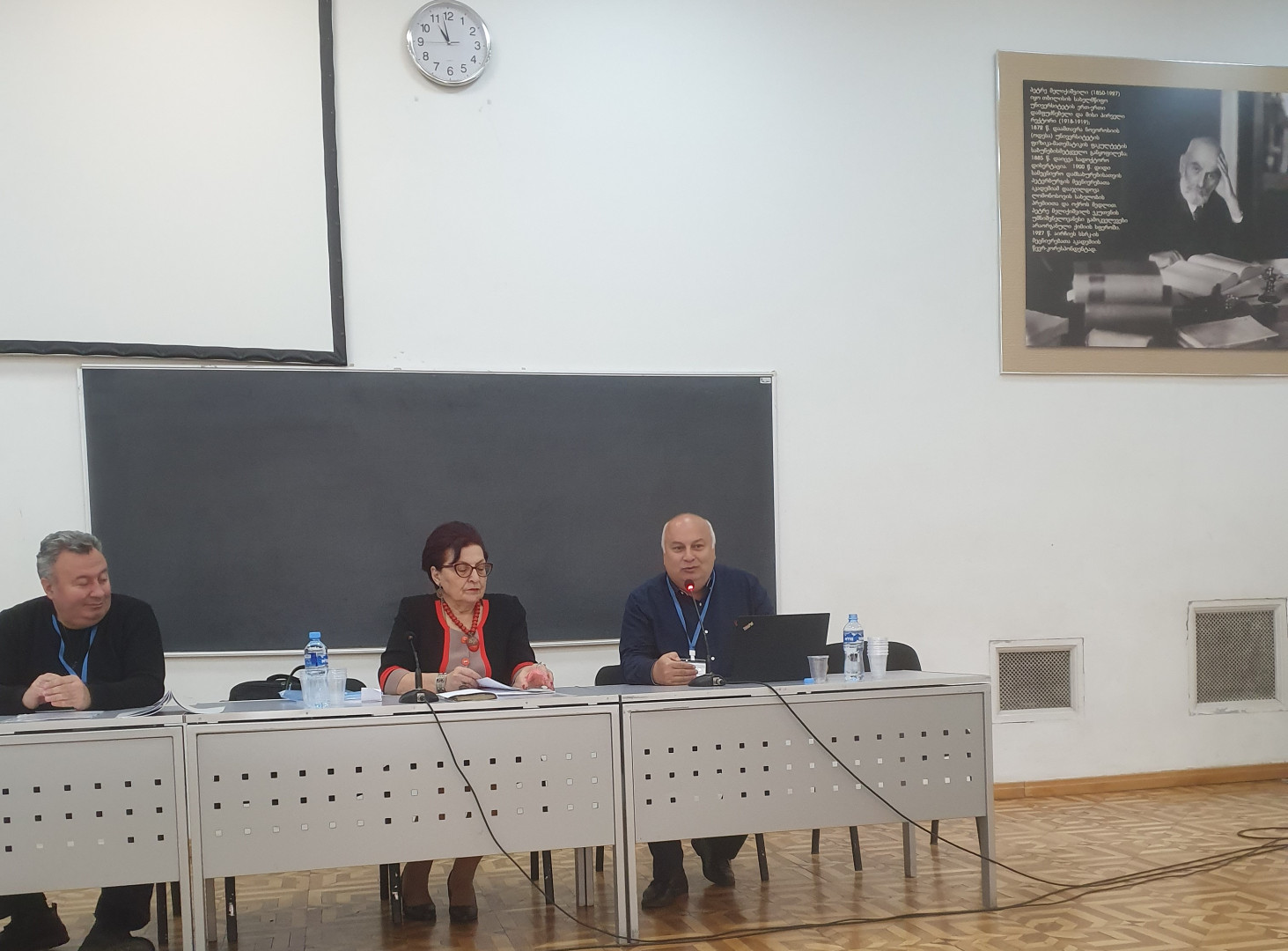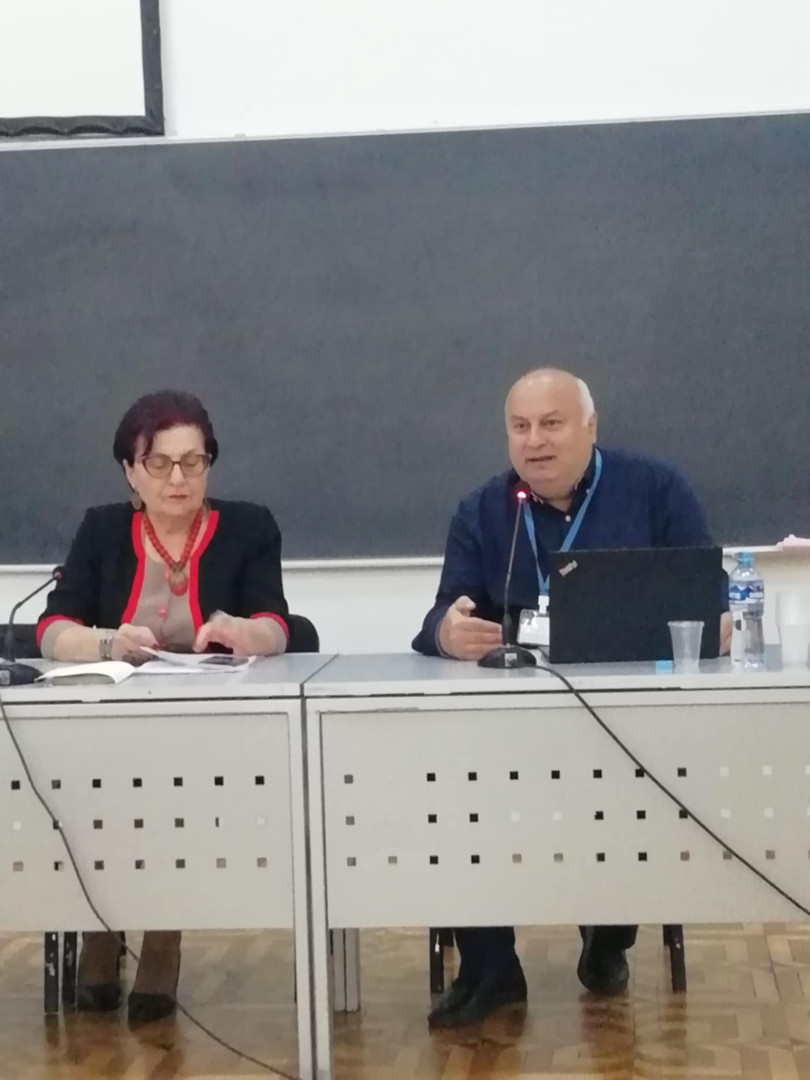On November 12, the 10th International Scientific Conference "Prospects for the Development of Georgian-Ossetian Relations" was held at Ivane Javakhishvili Tbilisi State University.
Naira Bepieva, Professor of Tbilisi State University, and director of Georgian-Ossetian Relationships Research Centre has been the chair of the conference for the past year.
The conference was attended by professors and researchers from Georgian and foreign universities and research institutes, as well as representatives of scientific circles from Vladikavkaz and Tskhinvali.
Tengiz Verulava, Professor of Caucasus University, Director of the Institute of Healthcare Policy, presented a report entitled "Health Diplomacy: The Best Mechanism for Rebuilding Trust between Georgians and Ossetians". He spoke about the role of health diplomacy in the process of restoring trust between Georgians and Ossetians, which can become a strong bridge and bring support, cooperation and protection of common interests.
At the end of the 20th century, Georgia experienced one of the most tragic periods in its history. During the challenges of this difficult time, individuals from both sides of the conflict collaborated in the field of medicine, prioritizing human life and health over ethnicity as their main values.
Since the 1990s, the Ministry of Health of Georgia, under Minister Avtandil Jorbenadze, has closely collaborated with the de facto Ministry of Health of South Ossetia, led by Minister Jemal Jikaev, as well as with the Tskhinvali Region Medical Service and Kurta Hospital. Through their joint and productive efforts, a medical diplomacy strategy was developed, which, despite the country's financial difficulties, included the components of financing and material and technical support of medical services in conflict regions.
Since 1997, medical institutions of the Tskhinvali region, including district hospitals and rural outpatient clinics, have been participating in the implementation of the "State Program of Medical Assistance".
Since 1999, the "State Program of Additional Medical Services for the Population of the Tskhinvali Region" was introduced. Its implementation involved three medical institutions in Tskhinvali: The Republican Hospital, the Maternity Hospital, and the Children's Polyclinic. The State Medical Insurance Company transferred 179.9 thousand GEL to Tskhinvali medical institutions in 1999, 156.1 thousand GEL in 2000, and 175.9 thousand GEL in 2001. Within the framework of the program, in 2001, services were provided to 553 pregnant women and 546 physiological newborns, inpatient services were provided to 674 patients, outpatient services were provided to 12,249 children aged 0-3 years.
Health is a neutral and universal value that does not belong to any ethnic group or political party. Cooperation in the field of health is a serious advance, as it ensures direct contacts between people and reduces disagreements. The provision of medical assistance, co-financing of health programs, and the creation of common infrastructure, contribute to the strengthening of common interests and trust.
The role of medicine in Georgian-Ossetian relations will create a more or less clear idea for society, in the most difficult period of our recent history, of professional and human responsibilities and duties. Health diplomacy, as a model of relations between people, will contribute to the transformational processes that sooner or later will inevitably face Georgian and Ossetian societies.




